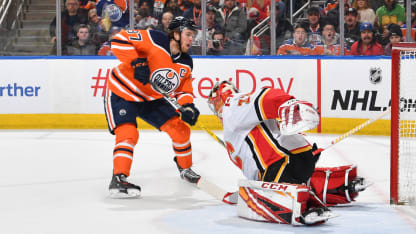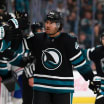"I think I'm going to be in the penalty box a little bit more just with the hate that you're going to probably get on for a lot of these teams," Columbus Blue Jackets captain Nick Foligno said. "I don't think we're used to playing playoff series against every single team in our division. You think about it, and it's pretty much what it is."
Players, coaches and executives from across the NHL agree that the 56-game season will create team and player rivalries that didn't previously exist, or that were bubbling under the surface, and intensify the more known rivalries, both historic and recently developed.
The eight teams in the MassMutual East Division, Discover Central Division and Honda West Division will play each other eight times this season. The seven teams in the Scotia North Division will play each other at least nine times and, in some cases, 10.
That's 10 episodes of the Battle of Alberta (Calgary Flames vs. Edmonton Oilers), nine of the historic rivalry between the Montreal Canadiens and Toronto Maple Leafs, including three in the last week of the season, and eight of the geographic rivalries in New York (New York Rangers vs. New York Islanders) and Pennsylvania (Philadelphia Flyers vs. Pittsburgh Penguins).
"There's a reason the NHL plays their playoffs within the division, it's to create those rivalries and that hatred, and we don't get a lot of that during the regular season bumping around from city to city with absolutely no back-to-backs against the same team in the same city," Vegas Golden Knights coach Peter DeBoer said. "I think you combine the shortened season, playing teams multiple times, including back-to-backs and some four times in a row, you're going to get a lot of hatred on the ice and a lot of familiarity with each other and a lot of battles that spill over from Game 1 to Game 2 to Game 3. And that's why, for me, playoff hockey in the NHL is the greatest sports event there is to watch, and we're going to get, I think, a good dose of that during the regular season."


















